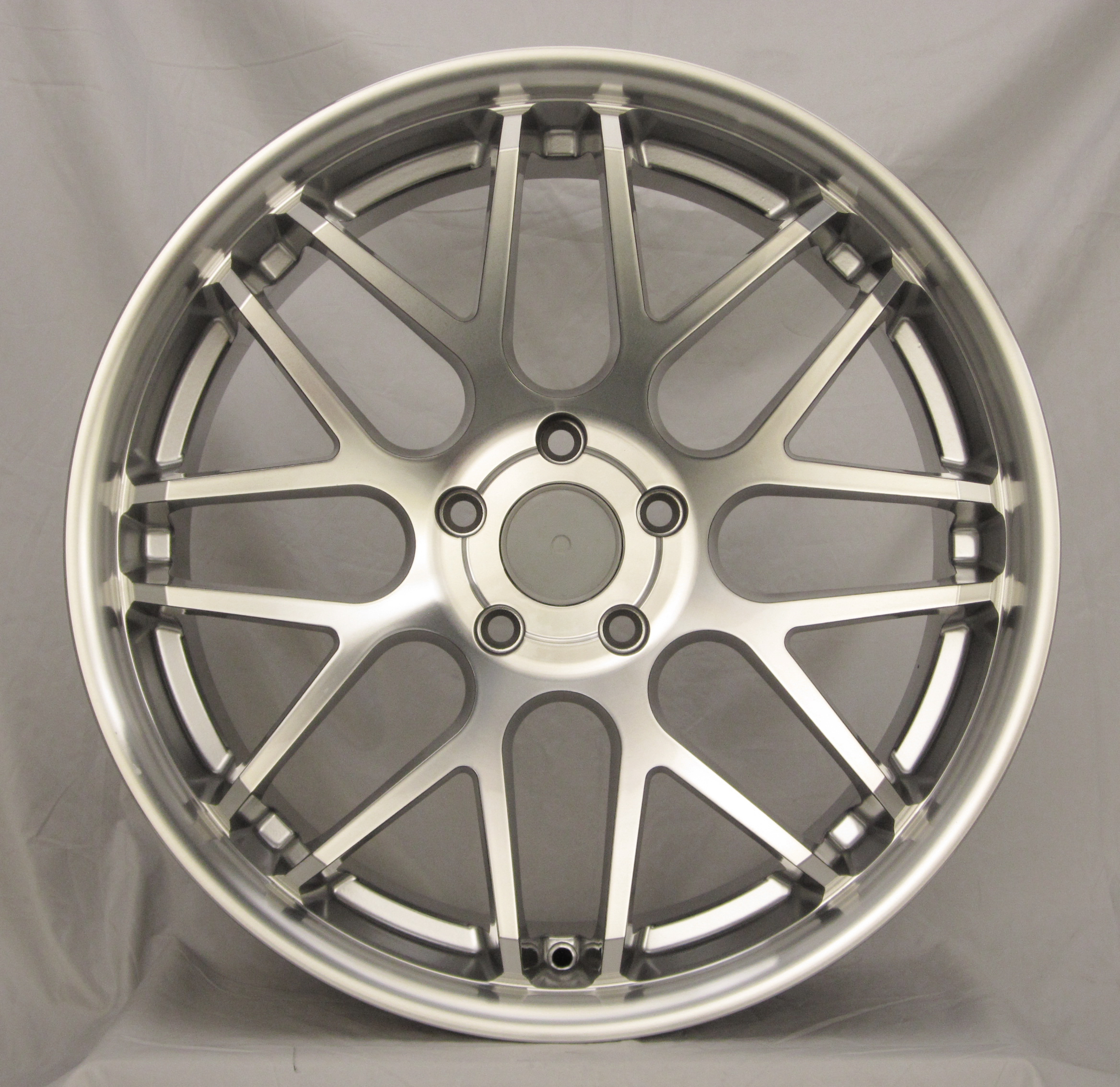How do you distinguish between forged and cast when choosing a car?
1. Wheel markings
Forged wheels generally have the word FORGED printed on them, but it cannot be ruled out that some cast wheels have the same wording printed on them to make them look fake, so be sure to keep your eyes peeled.
2. Look at the details of the wheel
Forged wheels are generally shiny and smooth with a good metallic sheen on the front and back, whereas cast wheels may be shiny on the front but dark on the back, with obvious release marks or burrs.
3. Tapping for echoes
If you strike the wheel with a small metal rod, the echo from a forged wheel will be crisp and clear, while the echo from a cast wheel will be dull and low.
Forged wheels? This is how you choose your car wheels
When it comes to changing wheels, many people feel that forged = high-end. But in fact, cast wheels are strong enough for most people, and relatively cheap, with the addition of the spinning process, suitable for most people to upgrade their choice; while forged is more like "iron", through the forging machine directly to the aluminum section of the whole forging, strength is much better than casting, suitable for advanced players or owners with demanding requirements for the shape.
How are wheels made? It's not unreasonable that good wheels are expensive
Wheels are definitely the hottest topic in the tuning world, with BBS, APSPEED, OZ and RAYS being some of the most popular top brands. However, not everyone is looking for performance when changing wheels, and cost effectiveness is also the direction many people are looking for. JWHEEL gives you a brief introduction to how wheels are produced.
Firstly, in terms of production process, wheels are divided into two categories: casting and forging, of which casting can be divided into gravity casting, low-pressure casting and spin casting. Around 80% of all aluminium wheels on the market are currently made using the casting method.
Production of cast wheels
Representative models: Volkswagen Passat (low-pressure casting), Toyota Corolla (gravity casting)
Low-pressure casting refers to the extrusion of liquid alloy into the casting mould at low pressure. It is highly automated, and the stability and precision of the finished product is the most important feature, and its production cycle is very short, 3 minutes-5 minutes to complete a wheel, but it is less outstanding in terms of flexibility due to more expensive moulds and slow mould changes, and usually large-scale orders from OEMs will use this production method.
Once cooled, the wheel has basically all the characteristics of a wheel, including spokes, frame and some styling details, and only needs to be heat-treated, finished and painted accordingly.
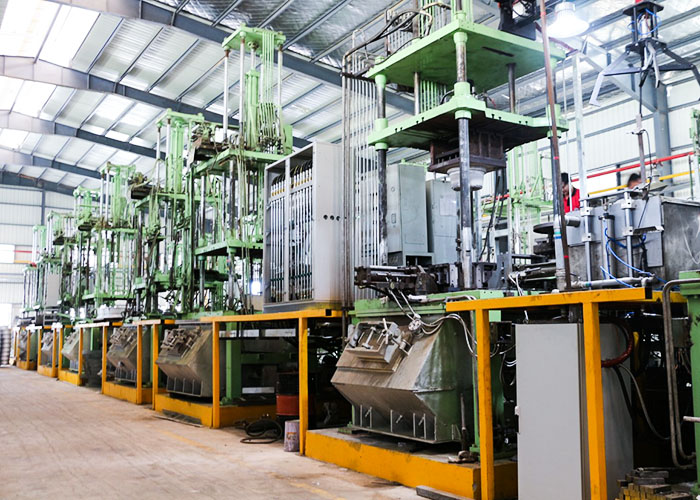
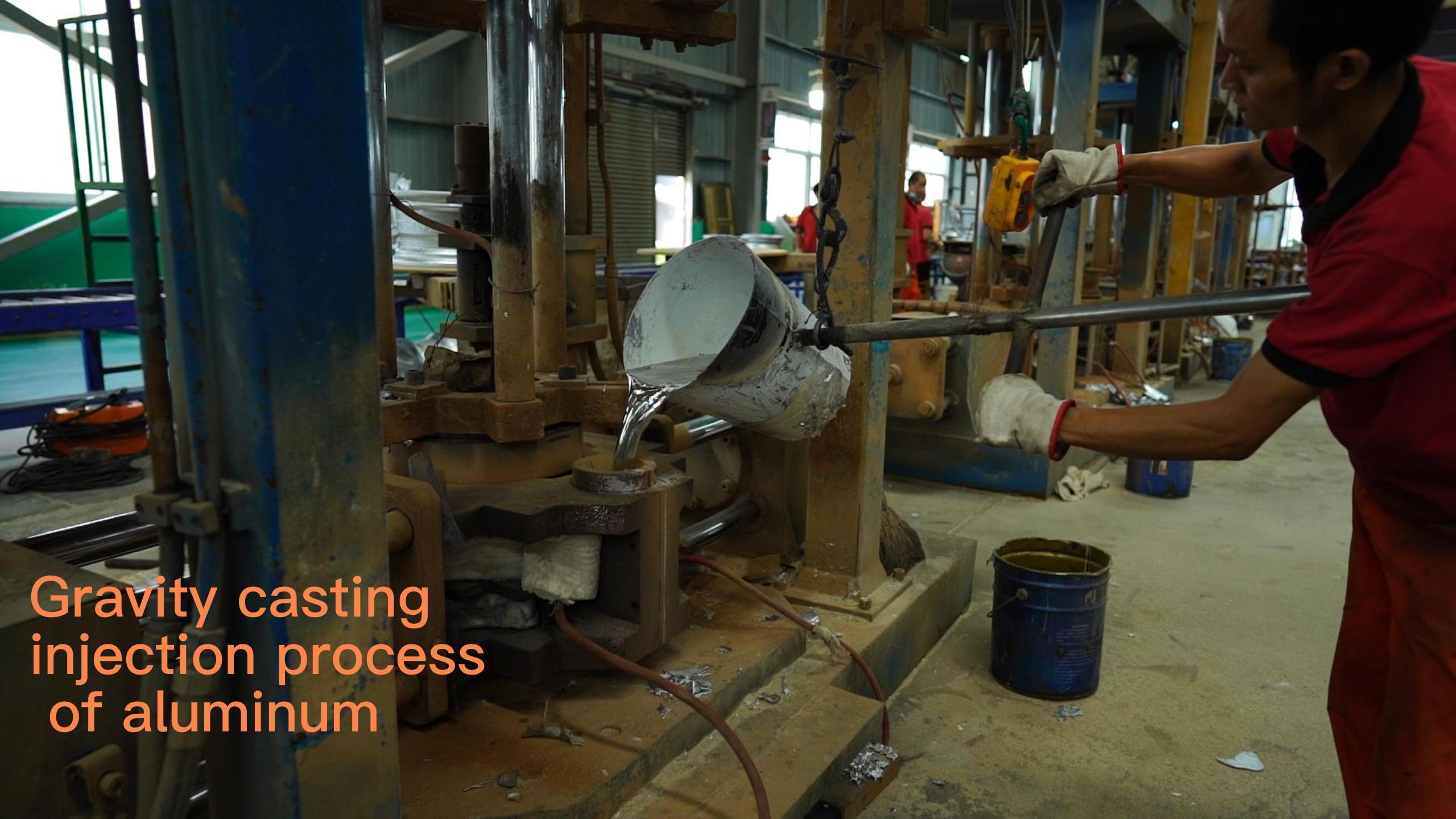
Gravity casting is more traditional than low-pressure casting, and the fact that the old casting process has been passed down to the present day is a testament to it. Gravity casting is a process in which a metal liquid is injected into the mould by the force of gravity on earth, also known as gravity casting. Gravity casting of wheels also involves the pouring of a prepared alloy into a mould, and the quality of the final formed wheel depends to a large extent on the pouring process, as the slightest air hole can cause the wheel to fracture.
Although it does not seem to be very different from low pressure casting in that it is a "top and bottom forming" method and low pressure has an advantage in terms of stability and accuracy, gravity casting is the core advantage in terms of flexibility and cost. However, this traditional and old gravity casting is now being replaced by low-pressure casting and forging processes.
Forged is a process based on the above two processes, with the addition of a spinning process, which is usually carried out on the rough rim after casting, mainly on the wheel frame part of the rotary stamping, the process is heated while the rotary knife is rotating, the wheel frame gradually stretched thin, from 15mm extrusion to 7mm, the internal metal molecules of the wheel frame will be more closely arranged, the metal strength will be higher This results in a tighter alignment of the metal molecules and a higher strength of the metal, as well as a reduction in weight. For example, most of the cast wheels from the international manufacturer RAYS are made by the Forged process, which is currently the main process for mid- to high-end cast wheels.
The quality, strength and elongation of wheels made by spinning technology are close to those of forged wheels and are easier to produce than forged wheels. Although there will be some difference in weight, the good thing is that there is a greater advantage in price. Some of the major international brands have also started to use this process for their cast wheels.
This is followed by a process called heat treatment, which, like steel, determines the strength of the wheel. Heat treatment is used to obtain the desired organisation and properties by means of heating, holding and cooling. Different strength and toughness requirements also require different heat treatment temperatures to control them. After heat treatment, the finished wheel is machined and cut, painted and so on.
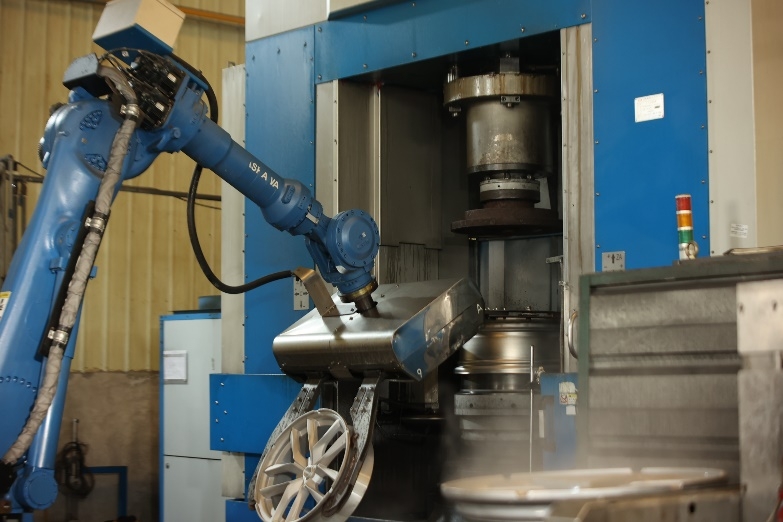
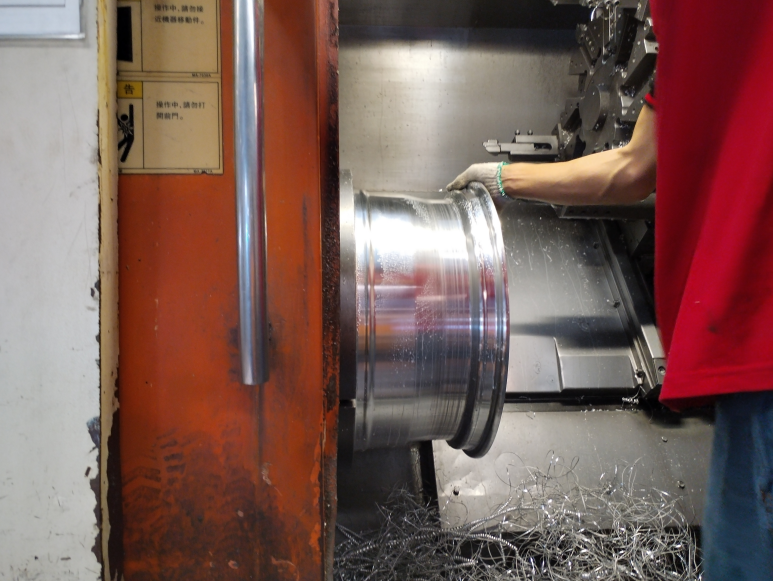
The aristocrat of wheels - forged wheels
After reading about cast wheels, it is time to talk about forged wheels. Many people give priority to the forging process when modifying their wheels, and forged wheels are also more expensive. So how do forged wheels achieve higher strength and lighter mass?
Unlike cast alloys, the raw material for forged wheels is aluminium forging. The cut aluminium segments go through the assembly line to the pre-heating process, where they are heated to 400°C-500°C before being transferred to the forging process. It is worth mentioning that the larger the tonnage of the forging machine, the lower the preheating temperature required, and the smaller the tonnage, the higher the preheating temperature.
The larger the tonnage of the forging machine, the lower the working temperature required for the aluminium section, and the smaller the tonnage, the lower the crystallisation of the final forged product and the higher the toughness.
At present, the international forged wheels are mainly divided into two ways: the first is through the forging directly forged out of the shape of the spokes, BBS, RAYS and other world-class forged wheels are most commonly used in this way, the advantage is that the strength is very high, but the loss of forging die is also greater, forging equipment and process requirements are higher. The forging machine directly forges the wheel shape several times, and then spinning, heat treatment and subsequent machining and painting to complete the product.
The other is to forge a pie-type wheel blank and then use machining to carve the spokes and shape out of the blank, but for a rigid closed body like a forged blank, the subsequent machining will more or less damage the molecular layer, thus releasing internal stresses, so it is less rigid than the former. However, this production method allows for a wide variety of styles and more affordable prices, and the forged wheels currently sold in the domestic aftermarket mainly use the latter production process.
As forging does not go through the solid → liquid → solid state transformation of matter, the forging process builds a delicate granular structure and improves the physical properties of the metal, so forged wheels are much more rigid than those produced by casting.
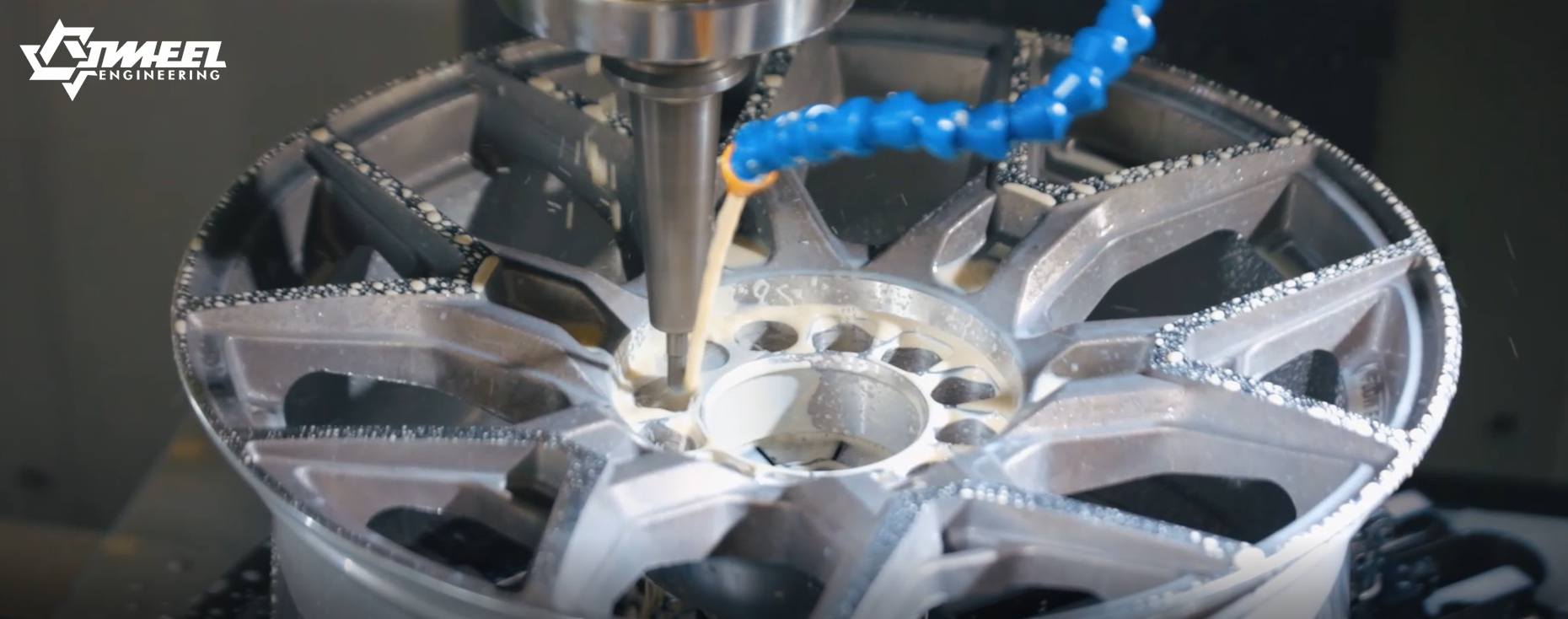
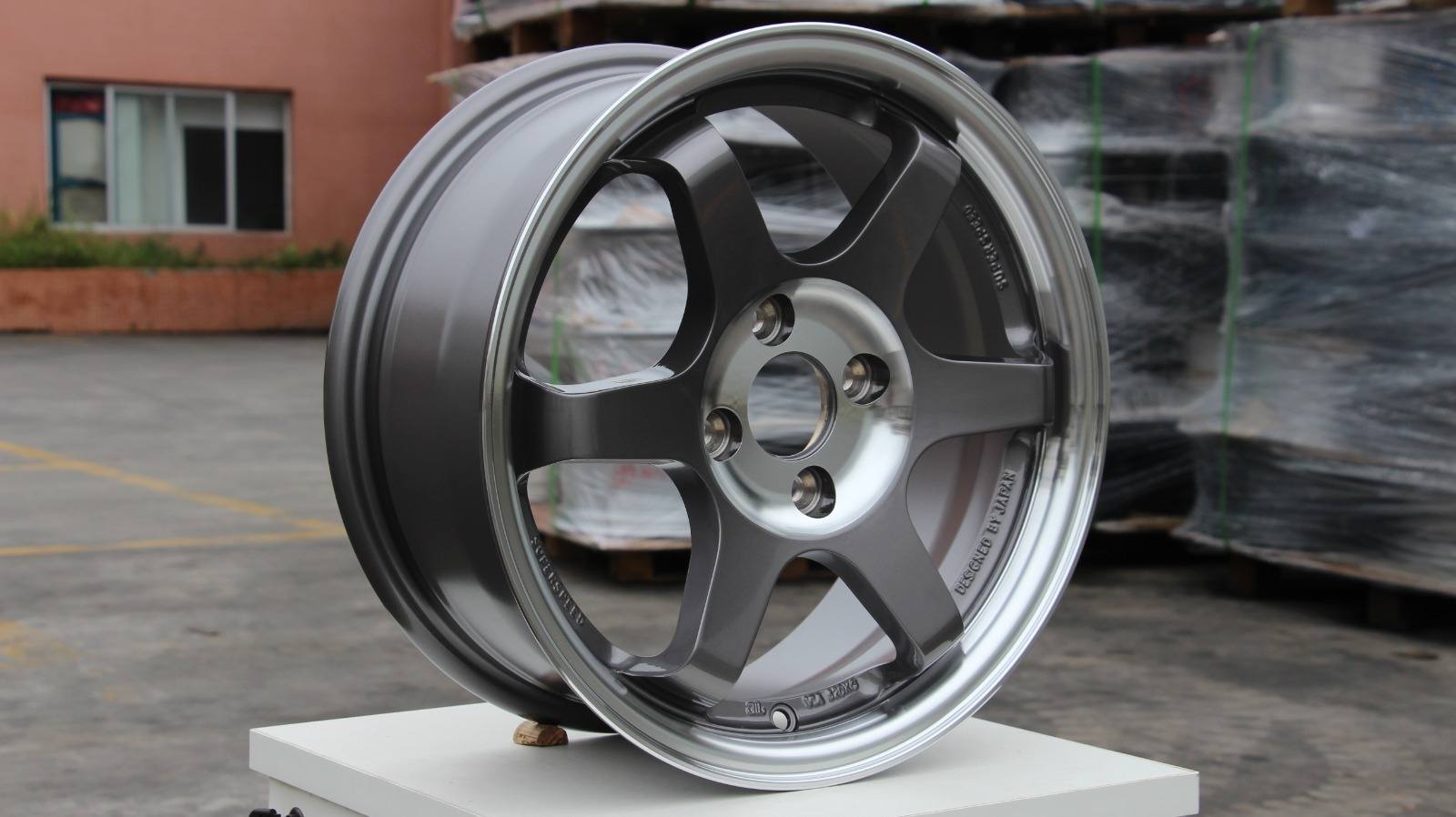
How do you distinguish between forged and cast when choosing a car?
1. Wheel markings
Forged wheels generally have the word FORGED printed on them, but it cannot be ruled out that some cast wheels have the same wording printed on them to make them look fake, so be sure to keep your eyes peeled.
2. Look at the details of the wheel
Forged wheels are generally shiny and smooth with a good metallic sheen on the front and back, whereas cast wheels may be shiny on the front but dark on the back, with obvious release marks or burrs.
3. Tapping for echoes
If you strike the wheel with a small metal rod, the echo from a forged wheel will be crisp and clear, while the echo from a cast wheel will be dull and low.
Forged wheels? This is how you choose your car wheels
When it comes to changing wheels, many people feel that forged = high-end. But in fact, cast wheels are strong enough for most people, and relatively cheap, with the addition of the spinning process, suitable for most people to upgrade their choice; while forged is more like "iron", through the forging machine directly to the aluminum section of the whole forging, strength is much better than casting, suitable for advanced players or owners with demanding requirements for the shape.
Jwheel, as an professional wheel manufacturer, concentrates in R&D and manufacturing of aluminum alloy wheels, including casting wheels, forging wheels and flow-form wheels. The products of it have passed the certifications of SEI、SEMA,VIA, JWL, JWL-T, TUV and so on. Since establishment, Jwheel has been developing steadily, with rich experience of designing and producing aluminum alloy wheels. It has earned the appreciation of both domestic market and foreign market with its high technology, good quality and customer service. It provided OEM service to many international brands like Vossen, OE Wheel, TSW, Rays, ProLine, Oxygen, AUTEC, etc., and it also provide ODM service, that is, for producing a new wheel, you can just provide a sketch, drawing or picture, and then Jwheel will finish the rest parts. By the way, the MOQ of forging wheels is four. (For more information, just go to the website: https://www.jjjwheel.com)
J122 19X8.5 15-40 108-120*5H 57.1-74.1 FIHC/FIHS1/MCAR/MC66/FC
